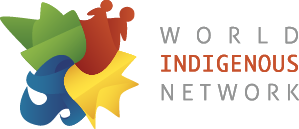The World Indigenous Network Conference, held in Darwin, Australia, brought together over one thousand indigenous people and local community land and sea managers from the 26th to the 29th of May.
The meeting provided an opportunity for indigenous peoples and local communities to share their experiences on community based natural resource management techniques through the hundreds of presentations that took place over the 4-day meeting.
The presentations highlighted the growing emergence of community led conservation, which has concurrently demonstrated stronger community identity, culture and livelihoods.
Keynote speakers at the event included Professor James Anaya, UN Special Rapporteur on the Rights of Indigenous Peoples, Professor Anil Gupta, founder of the Honey Bee Network and Dr. Taghi Farvar, President, Indigenous Peoples and Community Conserved Territories and Areas (ICCA) Consortium.
Gino Cocchiaro (Natural Justice) and Hassan Roba (Kivulini Trust, Kenya) presented on community protocols as a tool in securing stewardship rights. The presentation and discussion focused on the Borana pastoralists of northern Kenya who are developing a community protocol as a basis for their community land and resource management plans.
The Borana pastoralists of Kenya are members of the African Bio-cultural Community Protocols Initiative, which is currently partnering with communities in 9 countries in the region.
About the WIN
The journey of the World Indigenous Network (WIN) began on a warm day in August 2011, when two men, sitting on the shores of the beautiful Sunday Island, part of the Buccaneer Archipelago in the West Kimberley of Western Australia, talked about the idea of an international knowledge sharing network for Indigenous land and sea managers.

They formed a partnership that day, with a desire to share their vision with the world.
These two men were Tony Burke, the Australian Government Environment Minister and Wayne Bergmann, the CEO of KRED Enterprises. The Kimberley Land Council in Western Australia established KRED to seek out and develop business and job opportunities for the Kimberley Aboriginal people.
Since that day in August 2011, the journey has gathered momentum and in June 2012, the Prime Minister of Australia, Julia Gillard with the support of Brazil, New Zealand and Norway, launched the Network at the United Nations Conference on Sustainable Development (Rio +20) in Brazil.
The Australian Government established a National Advisory Group to support and provide strategic advice and direction for the WIN and WIN Conference in 2013. The group’s membership comprises of representatives from key Indigenous organisations around Australia.
The Australian Government and the National Advisory Group continue to build relationships and encourage support from other countries, international and non-government organisations to be part of the WIN journey.
As custodians of knowledge and expertise, the World Indigenous Network will bring together Indigenous Peoples and Local Communities land and sea managers to share stories, knowledge, cultural experiences and ideas to better manage ecosystems, protect the environment and support sustainable livelihoods.
The overall aim of the World Indigenous Network is to encourage:
- better conservation of biological diversity and sustainable use of natural resources
- improved social cohesion
- increased economic opportunities and the alleviation of poverty.


